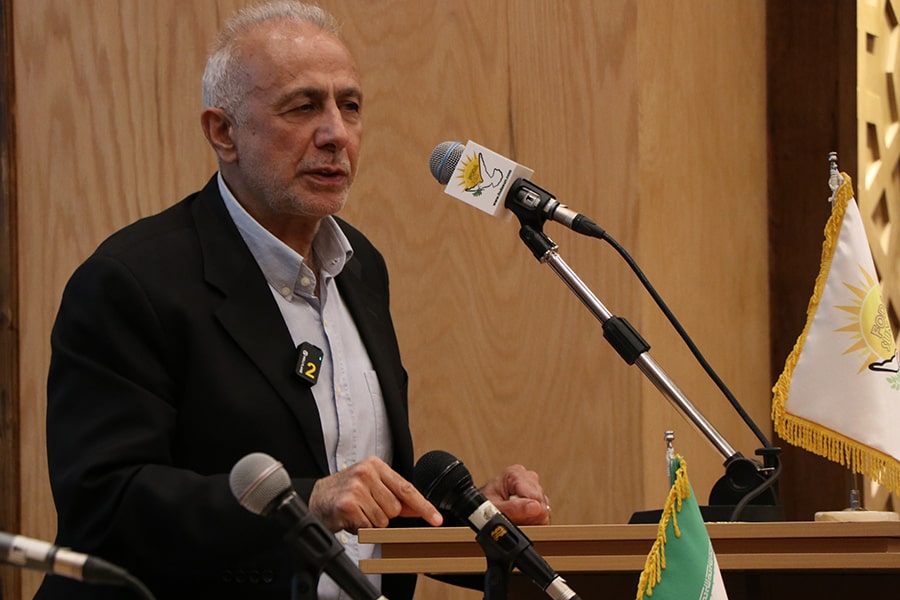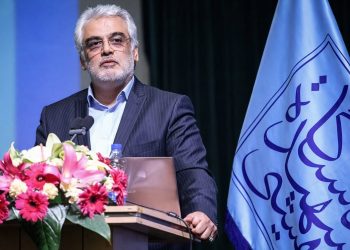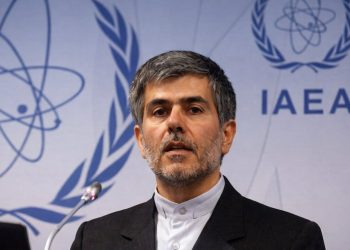Dr. Ebrahim Motaghi – Head of Faculty of Law and Political Sciences of Tehran University
In the Name of God, the Compassionate, the Merciful
First of all, I welcome our dear guests, who own a peace-valued approach towards the regional sphere and international politics. I am delighted that “The Foundation of Dialogue and Solidarity of United Nations” has provided this space for a sort of consensus. The second point I want to present to the friends is that although peace is an idealistic topic for all of us, we find it a rare good in the Middle East and Western Asia.
The fact is, that the region where we live, more than any other geographical area, has been involved in crisis, war, and conflict between social groups, governments, and international actors during the years after World War II. I have a question in my mind. Why the 18th, 19th, and 20th century Middle East, before World War I and before 1948, had a relatively peaceful sphere.
One main reason has engaged my mind, which is the existence and non-existence of Israel. Israel itself, with its establishment, has provided the background for the Increment of security conflicts. The wars in 1948, 1956, 1967, 1973, and many other wars that have taken place since the collapse of the Soviet Union demonstrate to this day, the situation in which a proxy actor known as Israel has gained an exceedable amount of military and supportive power that the United States is no longer able to provide the needed backgrounds for the balance of power and peacemaking activities.
This is a region where peace has a fragile and unstable nature. When I review peace studies, I conclude that some theorists pursue peace through law and international law, which means peacemaking by using them. Some others put peacemaking on their agenda through international institutions, such as international organizations. It is natural that in this circumstance, where a country like Israel pays no attention to the 248 and 373 resolutions of the United Nations Security Council, the idea of peace will not be very compatible with the equation of international law and institutions.
The third approach is peacemaking with the American model. The US uses “Domination” for peacemaking. “The Choice: Domination or Leadership” is the title of the book written by Brzezinski a few years ago, which took a critical approach to 21st-century American politics, especially since the time of George W. Bush, indicates that the idea of Domination creates the necessary ground for the disruption of the balance. The third existing approach attains peace by the balance of power.
In a region where the European powers and the US have played a pivotal role in the regional control sphere for over 500 years, peacemaking will not be achieved through the balance of power. Why? Because in the minds of such actors, peace and balance mean superiority. They believe that achieving superiority is one step before the conduction of balance.
The approach that Iran has, is the issue of peacemaking through the resistance. The principal intellectual axis of countries like Japan is peacemaking through diplomacy, regional equilibrium, and dialogue. This is one approach. However, I should say, that if it had been the 1930s Japan, it would have never accepted these beliefs. The Iranian belief is peacemaking through the resistance. Currently, the resistance should have support. Unfortunately, the support for the resistance belief is too limited and fragile. This is one of the fundamental challenges we face today, and why in the current sphere, are we in a dangerous era? Because, on one side, the dominant strategies are not strategies of balance, equilibrium, cooperation, and diplomacy.
Also, there is another point; we live in an era of technological change. The history of international relations has shown that World War I happened when the second wave of the technological revolution, the internal combustion engine, was created. The Soviet Union was in a condition of “Collapse” when the third wave of the technological revolution was formed. Today, my idea is that the regional sphere will stand in a situation, where the resistance approach in the field will be weakened gradually. But, I will end my speech with one of Graham Fuller’s ideas.
Fuller has an article, titled “If there were no Islam.” In fact, He wants to respond to the American conservatives who consider the main factor of the crisis related to Iran and Islam. According to Fuller: “If there were no Islam and no Iran, the unbalanced regional structure of the Middle East would inevitably create the grounds for new crises.” The French diplomacy in Lebanon could not prevent Israel’s violent actions. The efforts of the General Assembly of the United Nations could not provide the background for a cease-fire. But I will say this: through the ruins of Gaza, in the 2030s, the two-state structure will be formed in the regional sphere related to the Palestinians. It means that Palestine will become a state, and this issue can be one of the ways of peacemaking in the regional space.
Thank you for your attention






